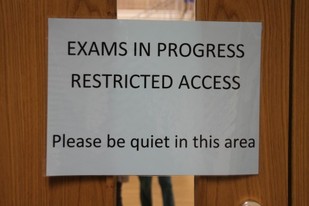
Recently I have been working with some young people ahead of their Leaving Certificate exams.
While every person is different, there are some things I can share here that we have been working on that may be helpful to others facing their upcoming exams. If you are someone who is taking the Leaving, or you know someone who is, then you might benefit from the following tips from the therapy room.
Understand that the education system largely equates memory with intelligence. Many of the exams you will face require the ability to memorise and repeat. Memory is important, but it is not intelligence. Some of the most brilliant minds in recent history had terrible memories and probably would have failed miserably had they to take the Leaving Cert exams. Albert Einstein for example, was renowned for his poor memory, even forgetting where he lived or where he was travelling to.
My point is that achieving good results in the Leaving Cert does not automatically mean you are intelligent, and the opposite is also true. Understand also that there are at least seven different types of intelligence (linguistic, logical, bodily, spatial, musical, interpersonal, and intrapersonal) and the state exams generally only test you on two (linguistic and logical). Therefore some people have a natural aptitude for these types of tests. Have optimistically realistic expectations and don’t judge yourself relative to how you think others will do.
Observe your mind. If you are struggling to bear the pressure of your upcoming exams – if you are getting more stressed and anxious as the time approaches, then you are not in control of your mind. It is in control of you. The typical mind churns up over 2000 thoughts per hour. Most of them come and go at lightning speed. When we attach an emotion to a thought however, something interesting happens. Whether the emotion is a positive or a negative one doesn’t matter. Once we attach emotion to a thought, the mind starts to generate similar thoughts and memories. As we allow this to happen the emotion intensifies. So if we start off with a thought that we attach mild concern to, the mind will attract like thoughts and before long we can end up feeling very panicky and thinking thoughts that seem to justify that emotion. If the mind is allowed to be in charge this will keep happening, and we can feel powerless to prevent it.
The good news is that we can choose a better feeling thought at any time. If you are experiencing distressing emotion because of your thought, choose a thought that feels slightly better than the one have now. When you do this the intensity of your emotion will decrease which will allow you to choose another better feeling thought, and then another, and so on. In this way you can gently guide your thoughts to a place that causes you no emotion. Or better yet to a place where you can feel good about what you are thinking.
Another way to train the mind to behave the way you want it to is through mindfulness. By being aware of what your mind is doing, you can slow the rapid flow of thoughts into a gentle trickle. My clients have found the following 5 minute exercise to be very helpful when practiced twice a day. It can also be very helpful to use in the moment when you are experiencing worry and stress.
Sit back in a chair with your spine straight. Close your eyes and allow yourself to become aware of your body.
Notice how the chair supports you and feel the pressure of your feet planted firmly on the floor.
Bring your attention to your breathing. Don’t try to breathe in any particular way; just be aware of your breath.
Notice your stomach rise as you inhale, and fall as you exhale.
Perhaps you will be aware of the feeling of the air as it passes through your nostrils. Cooler as you inhale, and warmer as you exhale.
As you do this your mind will attempt to distract you with thoughts. Understand that this is perfectly ok. It is just the mind doing what it does. Just notice what is happening and gently and kindly return your attention to your breath.
Practice this for a minimum of five minutes at a time, and a maximum of twenty.
Focusing on your breathing through mindfulness has the added benefit of activating in your body the parasympathetic response system. This system slows your heart rate, relaxes certain muscles, and puts your body into rest mode.
And finally…have FUN! Try to find ways to make your studying and preparing a little more fun. When you take breaks from your studies, do something that you really enjoy. Use whatever free time you have during the week to either rest or to have some fun. The more fun you have the lighter you will feel, and the easier you will find it to get through the weeks ahead.



 RSS Feed
RSS Feed

